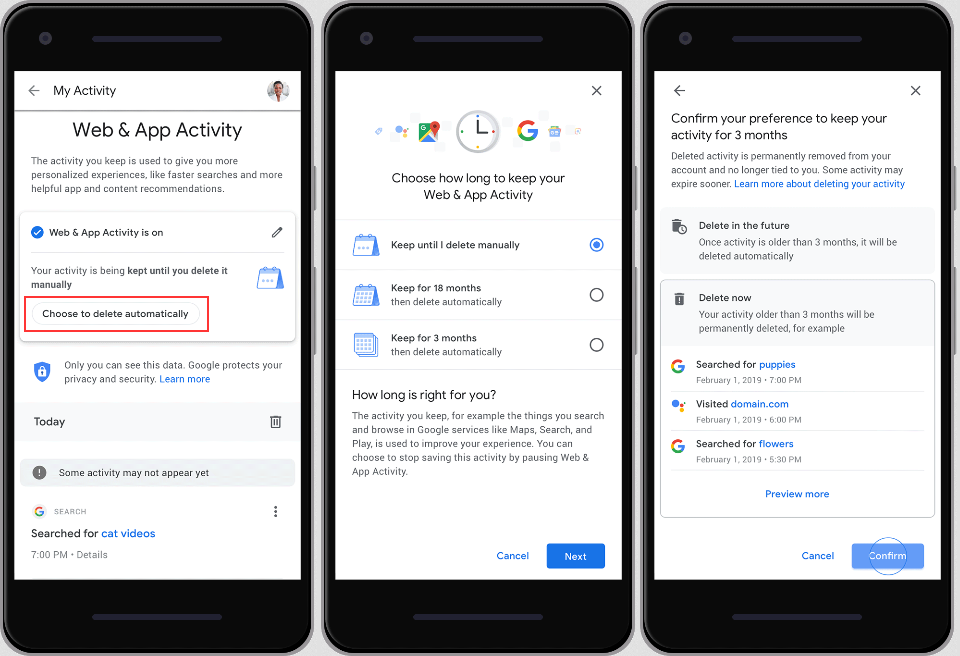
Google Offers a New Auto-Delete Option for the Location History Data
- Google Account holders will now be able to decide what information Google retains, and for how long.
- The tech giant has added a relevant option which will be rolled out during the upcoming weeks.
- GDPR investigations and US Congress questions about the SensorVault have brought this new feature to us indirectly.
Your Google Account is continually gathering and keeping data pertaining to your Location History, Web Activity, and App Activity. According to Google, this happens to help you enjoy a richer experience and get more accurate and relevant information from its services when you need it. However, not everyone is comfortable with this information retention practice, as the history can go back for years. Moreover, the user privacy protection requirements that arise from the GDPR law make the situation more complicated and risky for those who collect data and share them with others.
All that boils down to the introduction of a new option that users of Google services will soon have, and that is the auto-deletion of the data that is stored about your account. This includes the Location History, as well as the Web and App Activity data. If the auto-delete is not providing the level of control that you want to have, Google also gives users the ability to wipe the data manually and to precisely choose what to delete and what to keep. The auto-delete option is set in conjunction with an expiration time period that is defined by the user, so the data may be kept for 3 or 18 months before they get deleted. Users will not get this option immediately, as Google is planning to roll it out throughout the upcoming couple of weeks.
image source: blog.google
We all know that Google isn’t suddenly deciding to change their approach to user data collection out of the blue and with the only reason being “user feedback”. This feedback after all has been the same for many years now, and Google has decided to ignore it repeatedly and steadily. What is really forcing Google to provide this new option to users is the latest “SensorVault” revelations that have opened the Pandora’s box for the tech giant once again.
The story revealed that Google is collecting the location data of all devices that are running their software, no matter whether the owners of these devices have disabled the location tracking or not. This has led the US Congress committee to start asking questions on the operation of this database, the access of others on it, and the presence of more databases that are similar to the SensorVault. For the same reasons of involuntary data collection, seven EU countries have filed GDPR complaints against Google, the investigations of which are still ongoing.
What are your comments on the above? Let us know of your thoughts in the comments section beneath, or on the TechNadu socials, on Facebook and Twitter.







